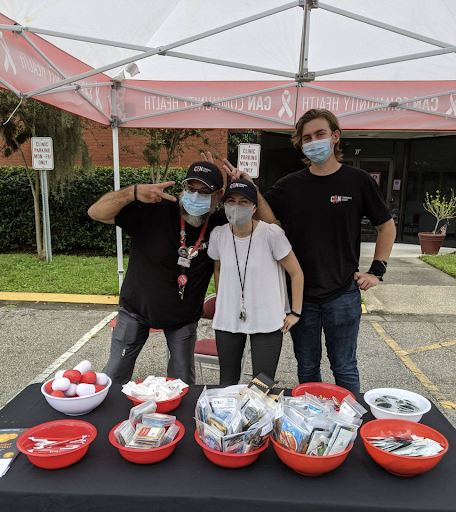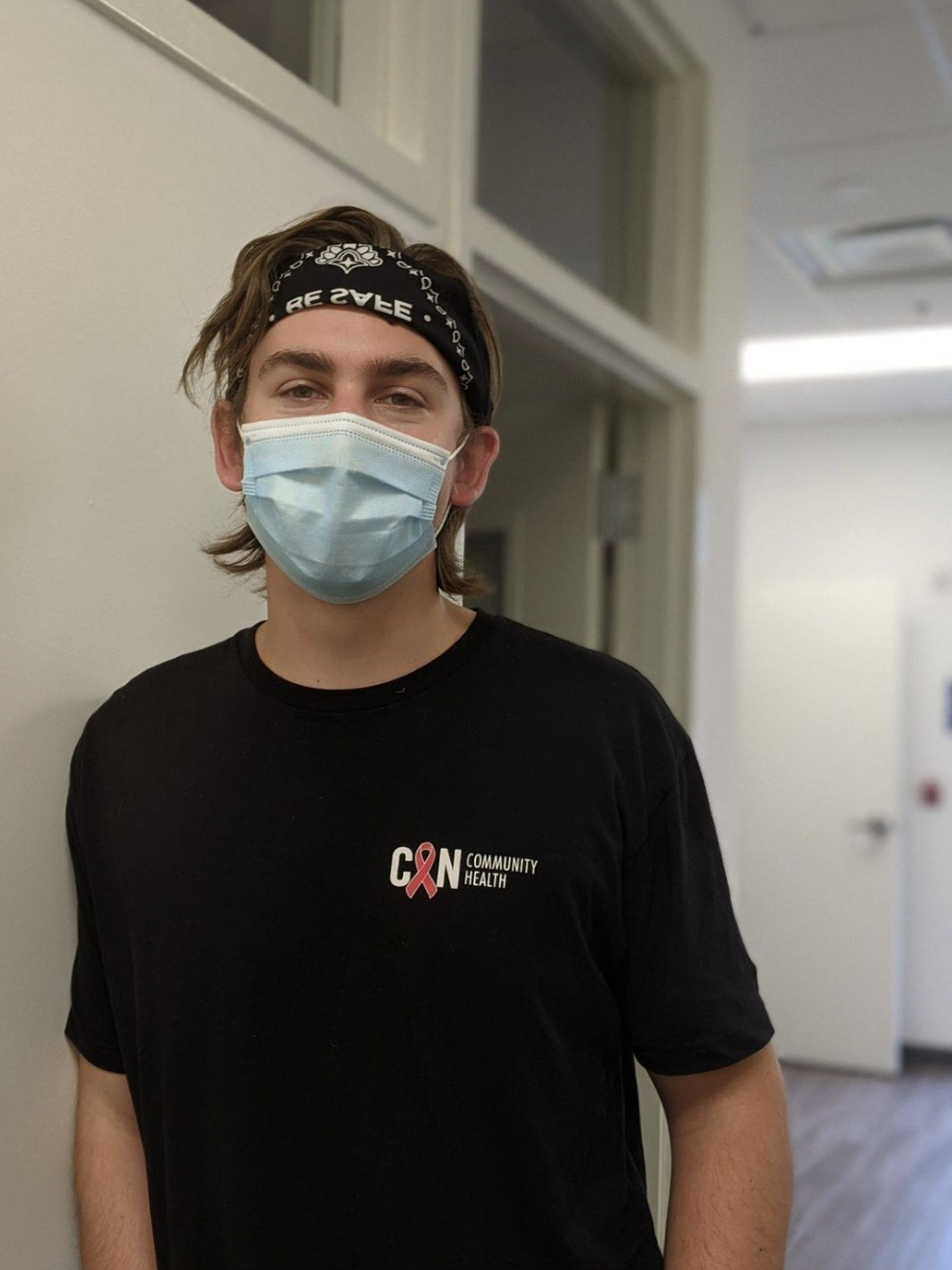Healthcare Access and the Fight to Stop Infectious Diseases by Drew Quiriconi
The conversation around American healthcare coverage generally revolves around the number of uninsured individuals, which in 2019 was around 28.9 million Americans, or 10.9% of the non-elderly adult population. This massive gap in healthcare coverage still, though, comes at a cost of around $11,000 U.S. dollars per capita annually, a bill nearly $4,000 higher than the nearest country, Switzerland (that, unlike the U.S., manages to achieve universal healthcare coverage).

and chatting about how to protect your sexual health.
This glaring issue in the American healthcare system was a major factor in my motivation to join the National Health Corps. Florida specifically—where I ended up choosing to serve—ranks fourth in the nation for the rate of uninsured population at 13.9%. I wanted to put the principle that every individual, regardless of their financial status, deserves access to quality healthcare at a reasonable cost into practice.
My position as Health Educator and Hepatitis C Outreach Coordinator at CAN Community Health primarily revolves around getting individuals into treatment for Hepatitis C that otherwise wouldn’t have that opportunity. My role involves identifying individuals with chronic Hepatitis C and enrolling them in treatment with our clinic through partnerships with several organizations that serve those most at risk of acquiring the infection, such as those with a history of substance use disorder, incarceration, or houselessness.
Hepatitis C is the most common bloodborne pathogen in the U.S., and prior to the current coronavirus pandemic was the infectious disease responsible for the greatest number of deaths. If left untreated, the often asymptomatic infection will eventually lead for many to the development of cirrhosis, which puts an individual at a high risk of hepatocellular carcinoma or end-stage liver disease. The transformation of Hepatitis C treatment standards has been remarkable and a model for eliminating other viral infections, with the new generation of direct-acting antivirals now being able achieve complete viral clearance in over 95% of those treated.

That remarkable efficacy comes with an often cost-prohibitive sticker price though. The cost of 2 to 3 months of treatment can range anywhere from $26,500 to $94,500, which is simply out of reach for so many of those who have developed chronic Hepatitis C. The value of an amazing medical innovation is lost, though, if access is lost to those who need it the most. CAN Community Health, my host site, offers a unique opportunity for those who find themselves in the position—our organization will cover the cost of insurance premiums for six months to help cover the cost of the medication. The services offered through my host site has allowed individuals from a diverse cross-section of backgrounds to finally have the opportunity to cure themselves of Hepatitis C.
Although I’m grateful to be an entry point for such a critical public health service, I am disappointed that what the clinic offers is a unique opportunity. There are still millions of individuals with untreated chronic Hepatitis C that just don’t happen to be in the vicinity of a non-profit offering pro-bono services, and many of those folks will end up facing serious adverse health effects from what is now a completely treatable disease. I hope to one day work in a healthcare system that can help any American regardless of financial status.
This blog was authored by NHC Florida Member Drew Quiriconi. Drew serves at CAN Community Health as a Health Educator and Hepatitis C Outreach Coordinator.